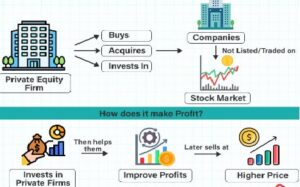As an alternative to traditional bank loans, you may qualify for funding through consumer financing. This can be a safer way to get a loan than putting your creditworthiness on the line with a personal loan. However, it’s also more challenging to get approved for a consumer loan because of higher down payments, interest rates, and minimum monthly payments.
If you’re interested in getting a loan but don’t want to go through the hassle of applying for one directly, look out for companies that offer financing as an option. Keep reading to find out how you can get funding through consumer lending.
How Much You Can Borrow and What are the Terms
You’ll need to know the amount you can borrow and the interest rate you’ll pay before applying for a loan. This will help you determine how much you can afford to spend on monthly bills and services each month. Typically, you’ll need to put down a portion of the amount you’re willing to borrow, usually at least 20% but usually around 30%. The lender typically holds the balance of the loan until the end of the term, when you must pay it off. You can contact Joseph Stone Capital for funding.
What is Consumer Financing?
Consumer financing is a type of loan that’s offered by banks, credit unions, and other financial institutions. It’s usually aimed at people who want to make low-cost or no-cost loans to help with large-ticket items, like a new car or house. It’s a good option for people who don’t have a lot of credit history and want to get a short-term loan for a project they’re working on or a vacation they want to take. You can typically get a low-interest loan with this financing option. Keep in mind that you won’t be able to get a loan for larger items like a vehicle or a house. These might come with higher interest rates.
How to Get A Loan Through Consumer Financing?
Just like with most forms of funding, you’ll need to apply and be approved for loan financing through a particular company. The loan term is usually longer than with conventional credit. You’ll usually make a lower monthly payment, and the lender has the right to repossess your car if you miss a payment. You can usually get a loan through a finance company or online loan store. When you apply online to Joseph Stone Capital, you’ll need to choose a financing option and then enter the required information.
When is consumer financing right for you?
If you’re in the market for a new car, house, or another big ticket item, you may qualify for a loan through consumer financing. This is good if you don’t have a lot of credit history and can qualify for a low-interest rate. However, make sure to assess your situation carefully before applying. There are risks involved with every type of financing. If you have a bad credit history, you may be denied a loan with a high-interest rate or simply be charged extra fees for mistakes made on your credit report.







